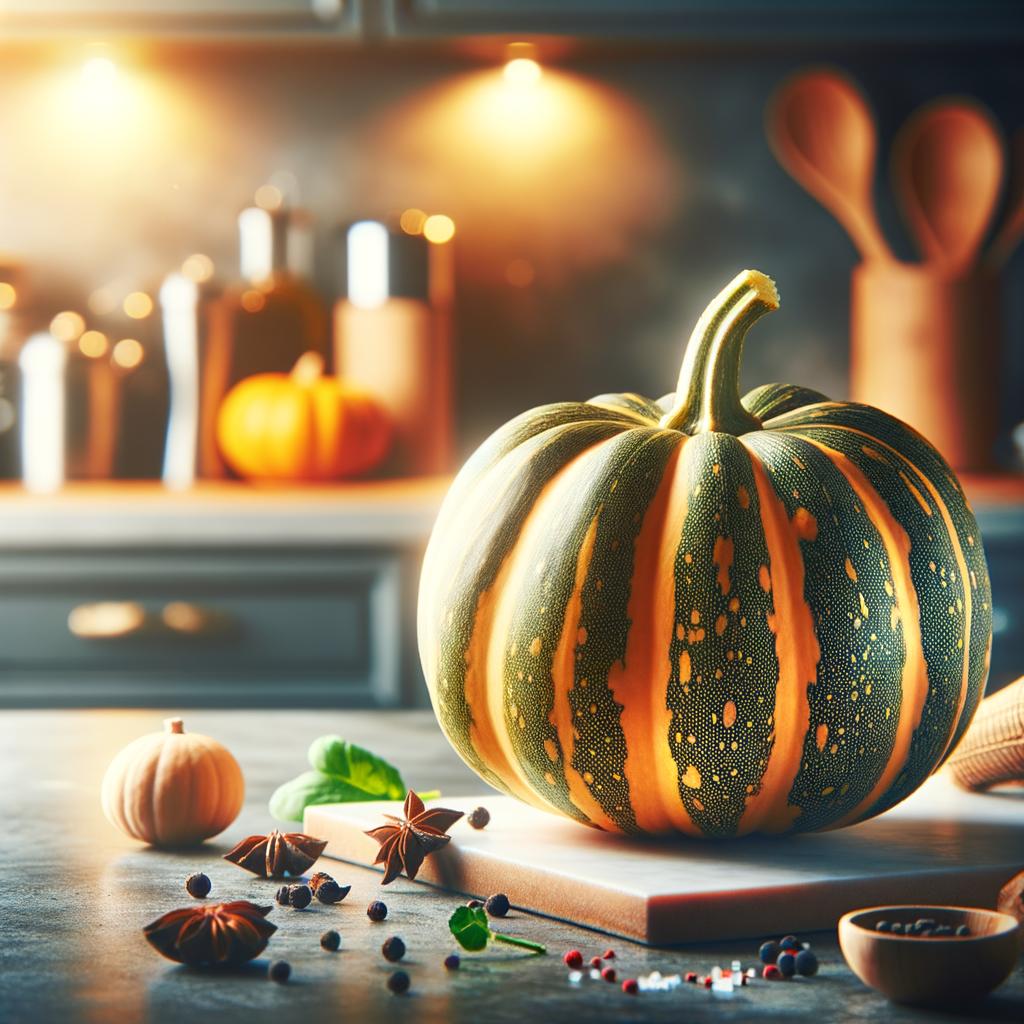Kabocha Squash

Description Kabocha squash, often referred to as the "Japanese pumpkin," is a winter squash variety that has graced many a kitchen with its vibrant, deep green exterior and sweet, rich flesh. Its exterior is hard, yet once you break through, you are welcomed by a bright orange interior that is both creamy and buttery in texture. The flavor profile of kabocha squash is reminiscent of a sweet potato and pumpkin hybrid, with a touch of nutty chestnut notes. The unique characteristic that sets kabocha apart from other squashes is its exceptional sweetness, which intensifies even more when cooked.
Primary Uses Kabocha squash is a versatile ingredient, lending itself to a variety of culinary applications. It can be roasted, steamed, sautéed, or even pureed into soups and sauces. Its natural sweetness makes it a popular ingredient in desserts, such as pies and custards. In Japanese cuisine, it's often used in a dish called "nimono" or simmered dishes, where it's cooked in soy sauce, mirin, and dashi. Beyond its culinary uses, kabocha squash is also used in some cultures for decorative purposes, especially during fall and winter seasons.
History The history of kabocha squash is as colorful as its flesh. Originating in Mesoamerica, it made its way to Asia via Portuguese sailors in the 16th century. It was in Japan where it received its name "kabocha," which means "pumpkin" in Japanese. Over time, its cultivation spread throughout Asia and it became a staple in many Asian cuisines. There's a charming Japanese folklore that if you eat kabocha on the winter solstice, you will not catch a cold during winter. Whether this is true or not, it certainly speaks to the squash's enduring cultural significance.
Nutritional Information Kabocha squash is a nutritional powerhouse. It's packed with beta-carotene, which the body converts into Vitamin A, promoting good eye health. It's also a good source of Vitamin C, iron, and some B vitamins. Despite its sweet taste, kabocha squash has fewer calories and carbs than butternut squash and sweet potatoes, making it a healthier alternative for those watching their carbohydrate intake. Its high fiber content aids in digestion and promotes a feeling of fullness, which can support weight management. With its rich nutritional profile, kabocha squash is more than just a delicious ingredient—it's a nourishing food that supports overall health.

